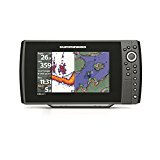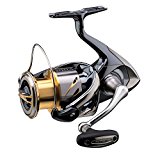Atlantic Salmon Habitat
Anadromous (sea-run) Atlantic Salmon spend most of their lives in the ocean. They only head into rivers and streams to spawn. When they’re in the rivers and streams, you’ll find them in deep runs and pools as they prefer to stay away from fast water.
Atlantic Salmon Freshwater Habitat
- Salmon fry and parr congregate around gravel, cobbles and boulders and where the water is clean, unpolluted and is well oxygenated.
The size of gravel or rocks preferred is smaller than that preferred by adult Atlantic Salmon.
They also like clean gravel for rebuilding a nest. The gravel provides the young, alevins, with some safety, where they can hide from predators.When they get older, reaching the stage of smolt, they head out of the river and migrate to the sea.
The adult Atlantic Salmon won’t leave the sea until they’re mature enough to spawn. When they do return, they always return to the river of their birth. Adult fish may still enter the rivers and spend time in areas of cool deep water.
- Not all Atlantic Salmon will head to the sea. Some will spend their early years in rivers which have natural grassy banks with some deciduous trees near the river.
The primary reason for staying in a river is because of an abundance of food. This is also the main reason why most Atlantic Salmon head to the sea. There’s usually much more food in the sea than in the river.
Ocean Habitat of Atlantic Salmon
Atlantic salmon, as their name implies, spend most of their time in the Atlantic Ocean. This is where they mature because of the abundance of food. While some landlocked salmon spend all their time in rivers, they prefer to spend most of their time in the open water of lakes.
How Does Sediment Effect Atlantic Salmon Fry and Parr?
- Atlantic Salmon need cold and clear water that has low levels of turbidity.
Human activities like farming, mining and forestry can add significant amounts of sediment to the river. Excess sediment has a significant effect on the Atlantic Salmon and their ability to survive and reproduce. In fact, studies have shown that a 20% increase in the level of sediment in the river habitat of an Atlantic Salmon had the effect of decreasing salmon eggs from hatching by an alarming 86%.


